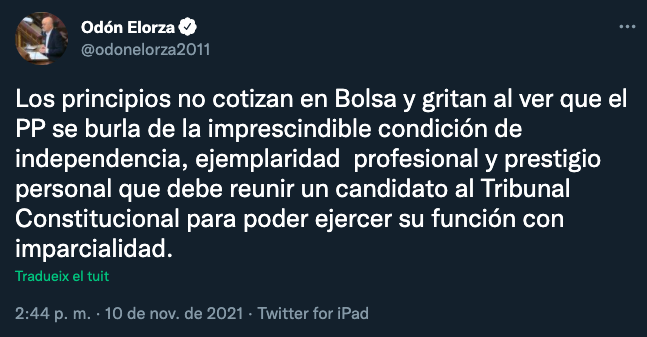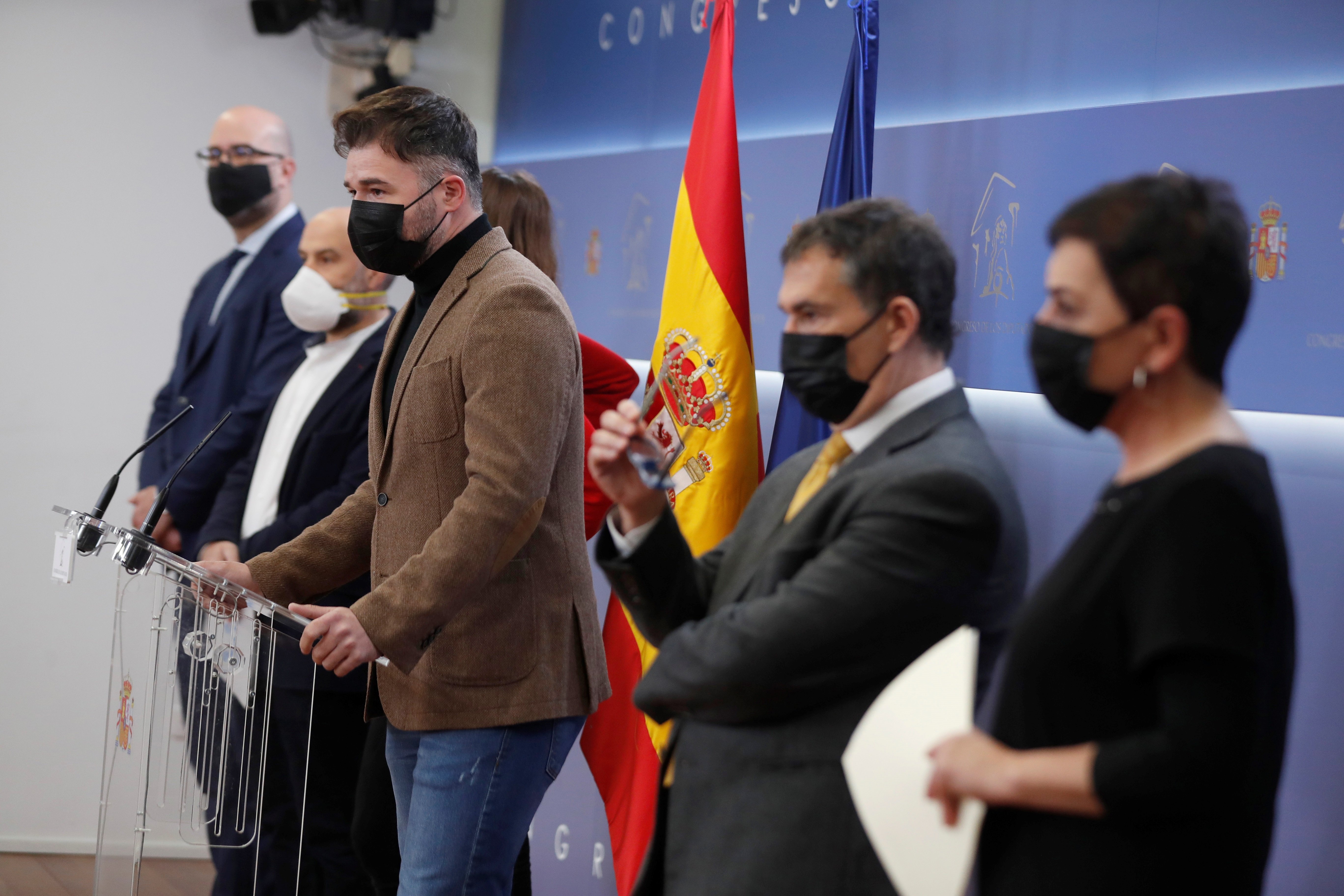Catalan, Basque and Galician pro-independence parties have decided not to take part in tomorrow's Congress of Deputies vote on the new judges of the Spanish Constitutional Court and new members of the Court of Accounts. The decision to boycott the vote, confirmed to ElNacional.cat by parliamentary sources, is intended to protest against both the method of election of the judges and the names proposed by the PP for the constitutional roles: Enrique Arnaldo and Concepción Espejel. A total of 29 deputies will take part in the action, including those of the Catalan parties ERC, Junts, PDeCAT and the CUP, the Basque party EH Bildu and the Galicians BNG, and they are still debating whether to walk out of the chamber when the debate begins or participate in it. They will, however, refrain from taking part in the voting, which is electronic.
The gesture will only be symbolic, unless it is accompanied by a breach of voting discipline from within the parties of the Spanish coalition government. For the appointments to go ahead, they need to be approved by three-fifths of MPs, that is, 210 deputies. Between the Socialists (PSOE), the Popular Party (PP), Unidas Podemos, Navarra Suma and Forum Asturias there are already 246. It would take at least 37 defections for the nominations to be rejected.
The controversy has centred on the Spanish parliamentary lawyer Enrique Arnaldo, proposed by the PP, with the almost-daily unearthing of new scandals. Suspicions of partisanship pursue Arnaldo. Among other things, he has spoken out against the independence movement in press articles and for years has participated in events held by the FAES, the foundation chaired by José María Aznar. He has also faced a number of conflicts of interest. He violated the very Statute of the Congress of Deputies when he was appointed as an adviser to the Balearic government under the PP's Jaume Matas, while simultaneously acting as legal coordinator in various committees of the lower house. His legal firm has also undertaken contracts for PP-run administrations.
Officially, the PSOE is not moving from its original position on the matter. Pedro Sánchez himself admitted during his appearance that "he does not like some of the candidates proposed by the PP", but argued that "the duty of the government of Spain is to save the agreement to renew the constitutional institutions and allow them to be renovated". And the spokesperson for the Spanish government, Felipe Sicilia, has also guaranteed that the deputies of the government parties will respect the agreement with the PP tomorrow. Justice minister Pilar Llop has avoided commenting on the suitability of Enrique Arnaldo for the post, simply celebrating that a "major deal" has been reached and that this is the most important thing.
But there are some within the Socialist ranks who do not hide their discomfort. One such case is the deputy Odón Elorza, who considers himself a free agent in many matters, and admitted yesterday that "many of us will vote while holding our noses". Today he strengthened his criticism: "Principles are not traded on the stock exchange, and they cry out at the sight of the PP mocking the essential condition of independence, professional exemplarity and personal prestige that a candidate for the Constitutional Court must meet to exercise the function impartially".

The same expression was used today by Jaume Asens, president of the parliamentary group of Unidas Podemos, who criticized Arnaldo for not complying with the necessary exemplary standards and that they will vote for him "with a peg on their nose". In an interview with radio station Cadena SER, Asens denounced a legal career "full of cases of corruption and malpractice", but still said that it is the "least worst" option to proceed with the renewal of the Constitutional Court.
The reality is that the negotiation for the renewal of the Court of Accounts and one-third of the Constitutional Court involved two parties, the PSOE and the PP, but with Unidas Podemos also taking part. In fact, the junior partner in the Spanish government has managed to place its own nominee among the four new constitutional judges: Ramón Sáez Valcárcel, a prestigious justice whose positions tend to be close to those of the alternative left party.

